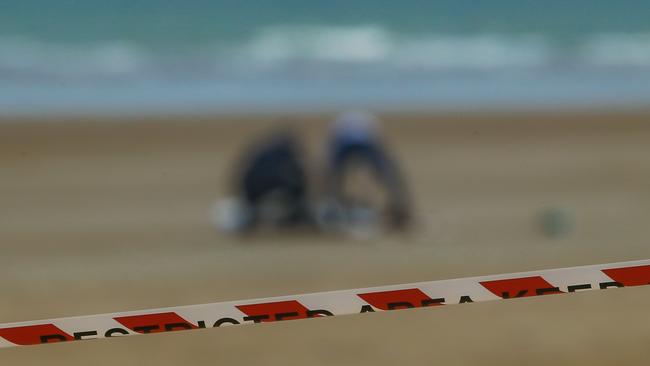Territory’s national shame out of sight, out of mind for rest of Australia
THE anniversary of the apology to the Stolen Generation is a reminder of the injustices of the past, but it should also serve as an uncomfortable reminder of the problems of the present, writes MATT CUNNINGHAM.

Opinion
Don't miss out on the headlines from Opinion. Followed categories will be added to My News.
IT’S 13 years today since Kevin Rudd’s apology to the Stolen Generation.
It was a moving moment and one that still brings tears to those families affected by the pain of forced child removals.
You could see that emotion in their faces at a breakfast to mark the event held at Charles Darwin University yesterday.
As Senior Australian of the Year Miriam-Rose Ungunmerr Baumann recounted how her sister was taken from their family at Daly River at the age of just two, you had to wonder how a government could condone such cruelty.
The anniversary of the apology is a reminder of the injustices of the past.
But it should also serve as an uncomfortable reminder of the problems of the present.
MORE TOP NT NEWS
Police officer allegedly bitten by woman during arrest
Larrakia Nation patrols record 60 per cent spike in alcohol-related call outs
Who says crocs can’t climb? Fisho spots 3m saltie up a tree on Corroboree Billabong
The apology sparked the Closing the Gap report, an annual update on the discrepancy in living standards between Aboriginal and non-Aboriginal Australians.
Thirteen years on that gap has barely budged.
The few gains that have been made have largely been in urban areas.
In some remote NT communities, the gap has never been wider.
We get regular reminders of this here in the Territory — ones we usually choose to ignore.
This week a 33-year-old Aboriginal man was found dead on a popular Darwin beach.
It was a story of some media interest for a few hours, until it was learned the man’s death was not suspicious.
But the fact this man didn’t meet with foul play is perhaps a bigger tragedy than if he had.
How does a man who should be in the prime of his life end up dead on a Darwin beach?
It was the second similar death in Darwin in a matter of weeks.
Just last month a slightly older Aboriginal man was found dead in a creek at Lyons.
Again, there were no suspicious circumstances.
Again it failed to capture our attention.
Just over a month earlier a horrific crime took place in a Darwin street.
At 11am in Freshwater Place in Jingili, across the road from a popular family park in a better-than-average suburb, a woman was stabbed to death.
Her partner has been arrested and charged with murder.
If this had happened in Melbourne or Sydney — or if the victim hadn’t been Aboriginal — this story would have dominated national headlines.
Instead, it barely rated a mention.
Then, last month, a woman was run down outside Alice Springs Hospital in a car allegedly driven by her partner.
R Rubuntja had spent years campaigning against family and domestic violence.
She’d only recently travelled to Parliament House in Canberra to discuss the issue with federal politicians.
Perhaps now she’s dead they might pay attention.
At the end of last year we also saw the release of two damning reports from the NT Coroner.
One into the deaths of three teenage girls who are suspected to have committed suicide after years of sexual abuse.
Another into the deaths of three children who had died from volatile substance abuse.
These horrors are all reported in detail here, but beyond the NT they barely raise an eyebrow.
Journalists, politicians, the public at large, all have more important things to deal with.
Like the crime waves that have been dominating our headlines recently, these incidents are the end result of a fundamental breakdown in society.
And it’s a problem that’s getting worse — not better.
It’s a problem that’s concentrated in remote communities, where people live in dilapidated houses in towns with third-world infrastructure.
Yet for the most part, funding is allocated based on indigeneity rather than disadvantage.
This issue was highlighted by the Yothu Yindi Foundation four years ago, and again by the Centre for Independent Studies last month. But the cry always seems to fall on deaf ears.
Occasionally there’s an incident so unspeakably horrific — such as the rape of a two-year-old girl in Tennant Creek — that the nation temporarily awakes from its apathy.
But for the most part, Australia treats the Northern Territory like a far-flung third-world country.
$1 FOR ALL YOUR NEWS? HERE’S HOW: Sign up now to our amazing deal of $1 for 28 days
Out of sight and out of mind.
What the government allowed to happen to the families of the Stolen Generation was a national shame.
So is what’s happening today.


